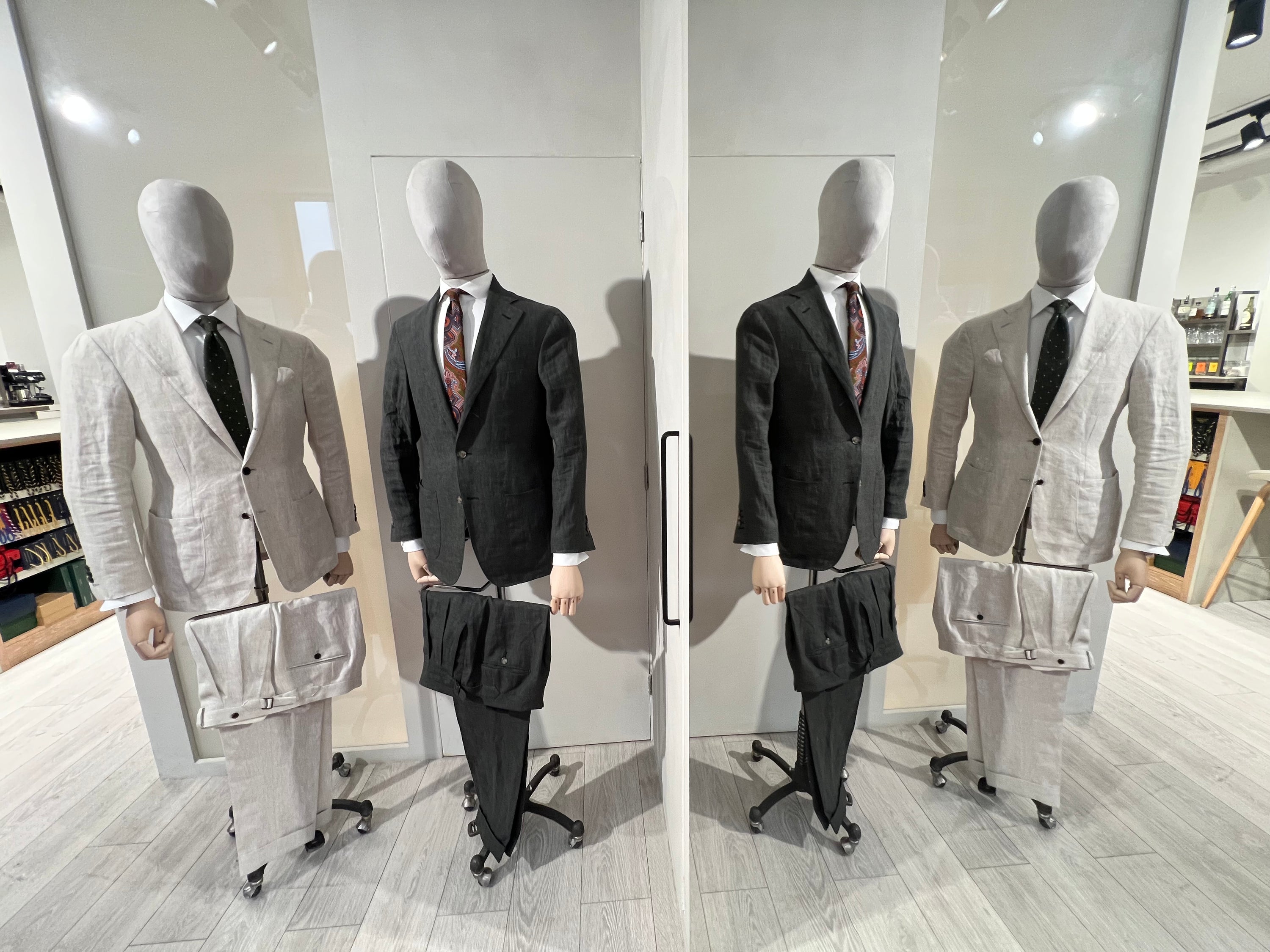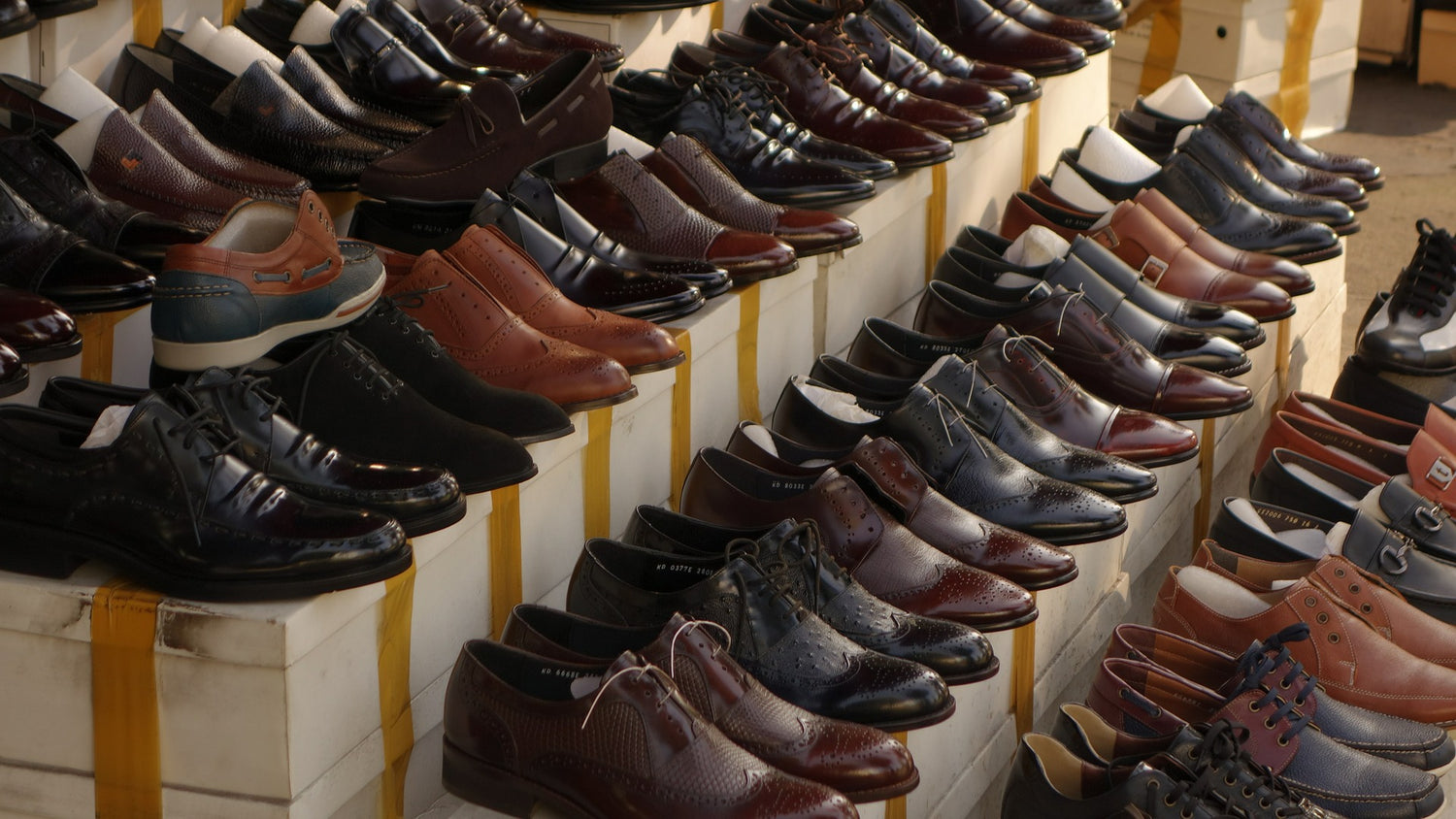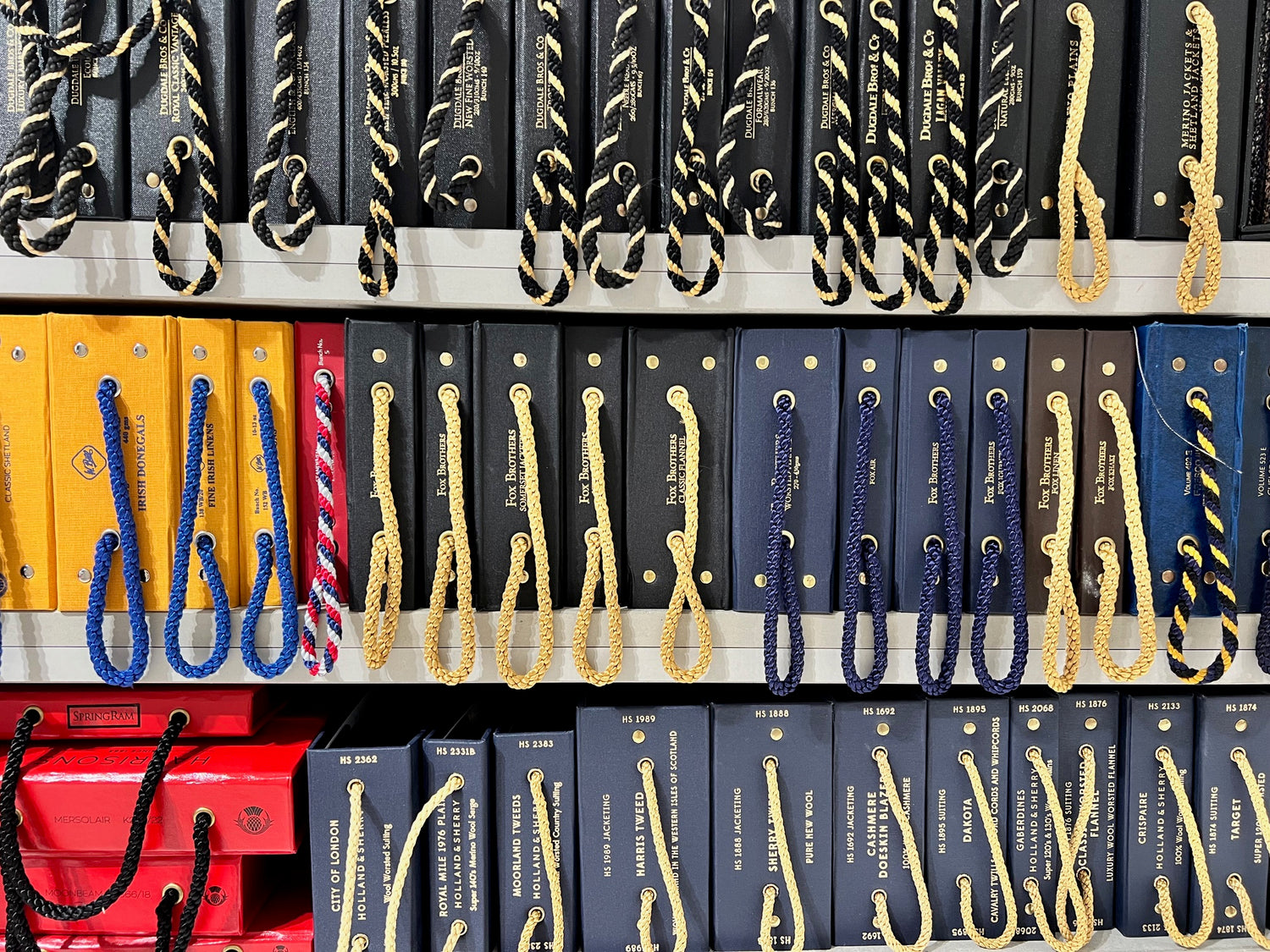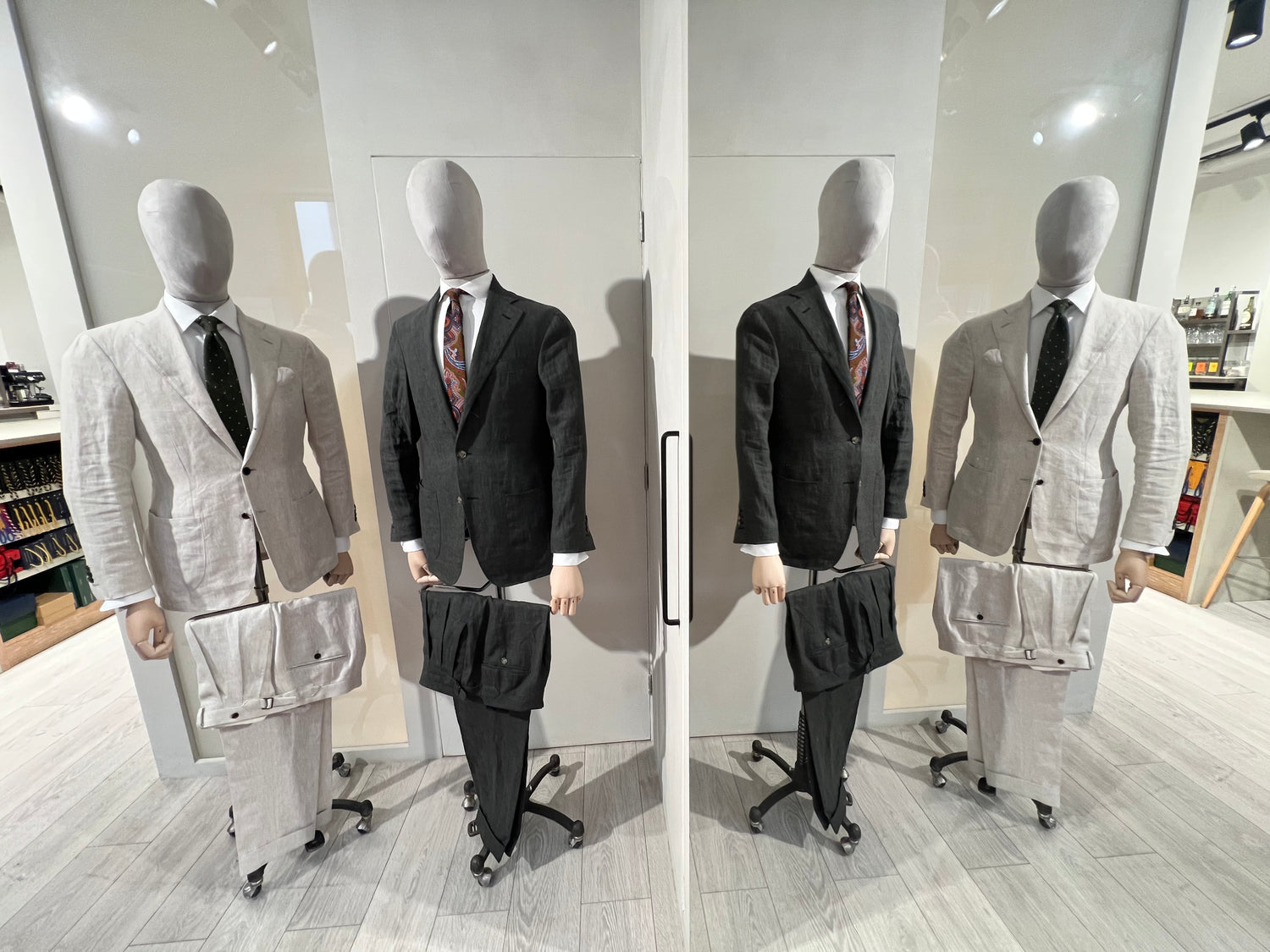As the weather starts to improve the quest for the perfect summer wardrobe becomes a priority.
Among the array of clothing options available, the linen suit emerges as a timeless classic, exuding effortless elegance and unparalleled comfort.
However, like any other apparel choice, linen suits come with their own set of advantages and disadvantages. Let's delve into the intricacies of this summer staple to help you decide if it's the right fit for your sartorial needs.
Advantages:
Breathability: One of the most celebrated qualities of linen fabric is its exceptional breathability. Its loosely woven fibres allow ample airflow, keeping you cool and comfortable even on the hottest of days. This natural ventilation makes linen suits a preferred choice for summer weddings, outdoor events, or everyday wear in warm climates.
Timeless Elegance: Linen exudes a casual sophistication that effortlessly transitions from daytime events to evening soirées. Its relaxed, yet refined aesthetic adds a touch of laid-back charm to your ensemble, making it suitable for both formal and informal occasions.
Texture and Drape: Linen's unique texture and drape lend a distinct character to the suit, setting it apart from other fabrics. Its slightly wrinkled appearance adds a touch of nonchalant chic, perfect for those who appreciate a relaxed, lived-in look.
Versatility: Linen suits are incredibly versatile, offering endless styling possibilities. Pair the jacket with chinos for a smart-casual look, or wear the trousers separately with a crisp white shirt for a more relaxed vibe. Linen's versatility renders it an invaluable asset to any collection of clothing options.
Environmentally Friendly: Linen, derived from the flax plant, stands out as an environmentally friendly choice for conscientious consumers. Its cultivation requires minimal water and pesticides, making it a sustainable alternative to synthetic fabrics, thus aligning with eco-conscious values.
Disadvantages:
Wrinkling: While some appreciate the casual charm of linen's wrinkles, others may find them to be a drawback. Linen has a tendency to crease easily, meaning you may need to embrace the relaxed aesthetic or be prepared to iron or steam your suit regularly to maintain a polished appearance.
Durability: Although linen is prized for its breathability and comfort, it is not as durable as other suit fabrics. Its fibres are prone to wear and tear, especially in high-friction areas such as the knees and elbows. Proper care and occasional rotation with other suits can help prolong its lifespan.
Stiffness: Linen fabric tends to feel stiff initially and may require some breaking in to achieve optimal comfort. However, with wear and laundering, it softens over time, moulding to your body for a personalised fit.
Staining and Shrinkage: Linen is notorious for its susceptibility to stains and shrinkage if not properly cared for. It is advisable to spot clean stains promptly and follow the manufacturer's care instructions to prevent shrinkage and maintain the integrity of the fabric.
Limited Colour Options: While linen suits are available in a variety of colours, they may not offer the same breadth of options as suits made from other fabrics. Additionally, some dyes may appear differently on linen compared to other materials, so it's essential to choose colours wisely.
Linen suits embody the essence of summer style with their breezy elegance and relaxed charm.
Their unparalleled breathability and timeless appeal make them a worthy investment for warm-weather wardrobes.
However, it's essential to weigh the advantages against the disadvantages to determine if linen suits align with your preferences and lifestyle.
Whether you're attending a beach wedding or strolling through the city streets on a sunny day, a well-tailored linen suit is sure to make a lasting impression.



